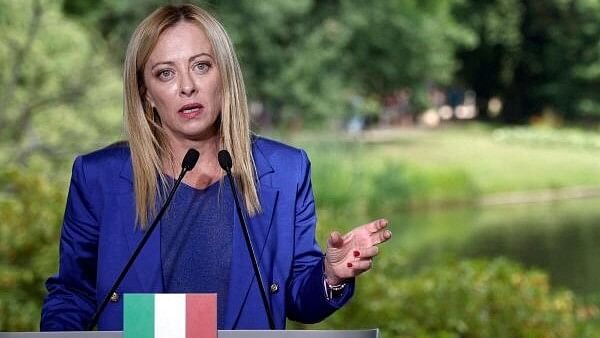
Italian Prime Minister Giorgia Meloni.
Credit: PTI Photo
Rome: Italy's right-wing government is facing criticism over its celebration of a major World War Two battle, after the defence ministry said the defeated fascist soldiers of dictator Benito Mussolini had died for the country's freedom.
In a social media post on Wednesday commemorating the anniversary of the 1942 battle of El Alamein in Egypt, the ministry described the conflict as "heroic and tragic" and paid homage to Italy's soldiers "who sacrificed their lives for our freedom."
The battle pitched the combined forces of fascist Italy and Nazi Germany, led by German General Erwin Rommel, against Britain and its allies, led by British General Bernard Montgomery.
Paola Chiesa, who heads the delegation of Prime Minister Giorgia Meloni's Brothers of Italy party in parliament's defence commission, posted on Facebook that "the Heart of our Nation is today at El Alamein."
Both posts met with widespread criticism from opposition politicians, academics and on social media.
"How you can associate El Alamein with having 'fought for our freedom' is beyond my comprehension," said Mattia Guidi, a politics professor at Siena University.
Lawmakers from the left-leaning 5-Star Movement, the second largest opposition party, issued a statement saying that while Italy's soldiers had fought bravely, it was "inopportune" to commemorate them as having fought for freedom.
Instead, "they were victims of (Italy's) colonial and fascist regime."
Brothers of Italy traces its roots to the Italian Social Movement (MSI), formed in 1946 as a direct heir of Mussolini's blackshirts, and the legacy of fascism continues to torment Italy almost 80 years after the end of the war.
Since she took office two years ago Meloni has had to fend off criticism over several manifestations of nostalgia for fascism from members of her party.
She herself has decried all forms of totalitarianism and spoken of her aversion to fascism, but she avoids defining herself as "anti-fascist", despite frequent calls for her to do so.